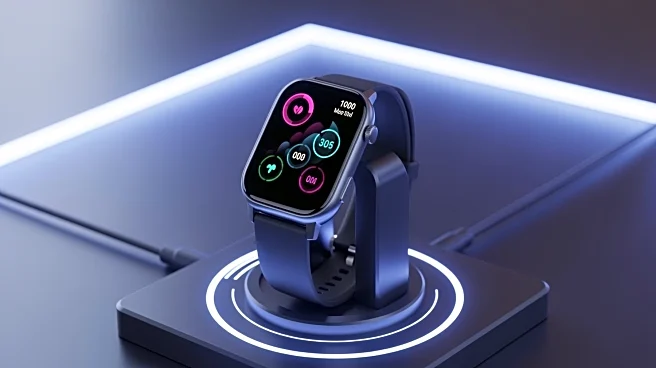What's Happening?
Fitbit is rolling out its new Gemini-powered health coach feature to Premium subscribers in the U.S. on Android, with plans to expand to iOS later this year. This AI-driven feature, named 'Coach,' aims to serve as a comprehensive fitness trainer, sleep
coach, and health advisor. The Coach can create personalized fitness routines based on user goals, preferences, and available equipment, adjusting plans in real-time based on feedback. It also analyzes sleep habits to offer insights for improving sleep quality. The Fitbit app has been redesigned with a more user-friendly interface, organized into four main tabs: Today, Fitness, Sleep, and Health. Each tab provides specific metrics and insights, such as cardio load data, workout plans, and sleep patterns.
Why It's Important?
The introduction of the Gemini-powered health coach marks a significant advancement in wearable technology, leveraging AI to enhance user experience and health outcomes. This development positions Fitbit as a competitive player in the fitness and health tech market, potentially attracting more users to its Premium subscription service. By offering personalized and adaptive health coaching, Fitbit aims to improve user engagement and satisfaction, which could lead to increased retention and subscription growth. The focus on sleep and fitness metrics also aligns with growing consumer interest in holistic health management, making Fitbit's offering more relevant in today's health-conscious society.
What's Next?
As the Gemini-powered health coach becomes available to more users, Fitbit may continue to refine and expand its capabilities based on user feedback and technological advancements. The rollout to iOS users later this year will broaden the feature's accessibility, potentially increasing its adoption. Fitbit might also explore partnerships or integrations with other health and fitness platforms to enhance its ecosystem. Additionally, the company could introduce new features, such as nutrition tracking and cycle logging, to further enrich the user experience and maintain its competitive edge in the market.
Beyond the Headlines
The integration of AI into health coaching raises questions about data privacy and the ethical use of personal health information. As Fitbit collects more detailed user data to provide personalized insights, it must ensure robust data protection measures are in place to maintain user trust. Furthermore, the reliance on AI for health advice could shift consumer expectations and behaviors, potentially influencing how individuals approach personal health management. This development may also prompt discussions on the role of technology in healthcare and the balance between human and machine-driven health solutions.
















